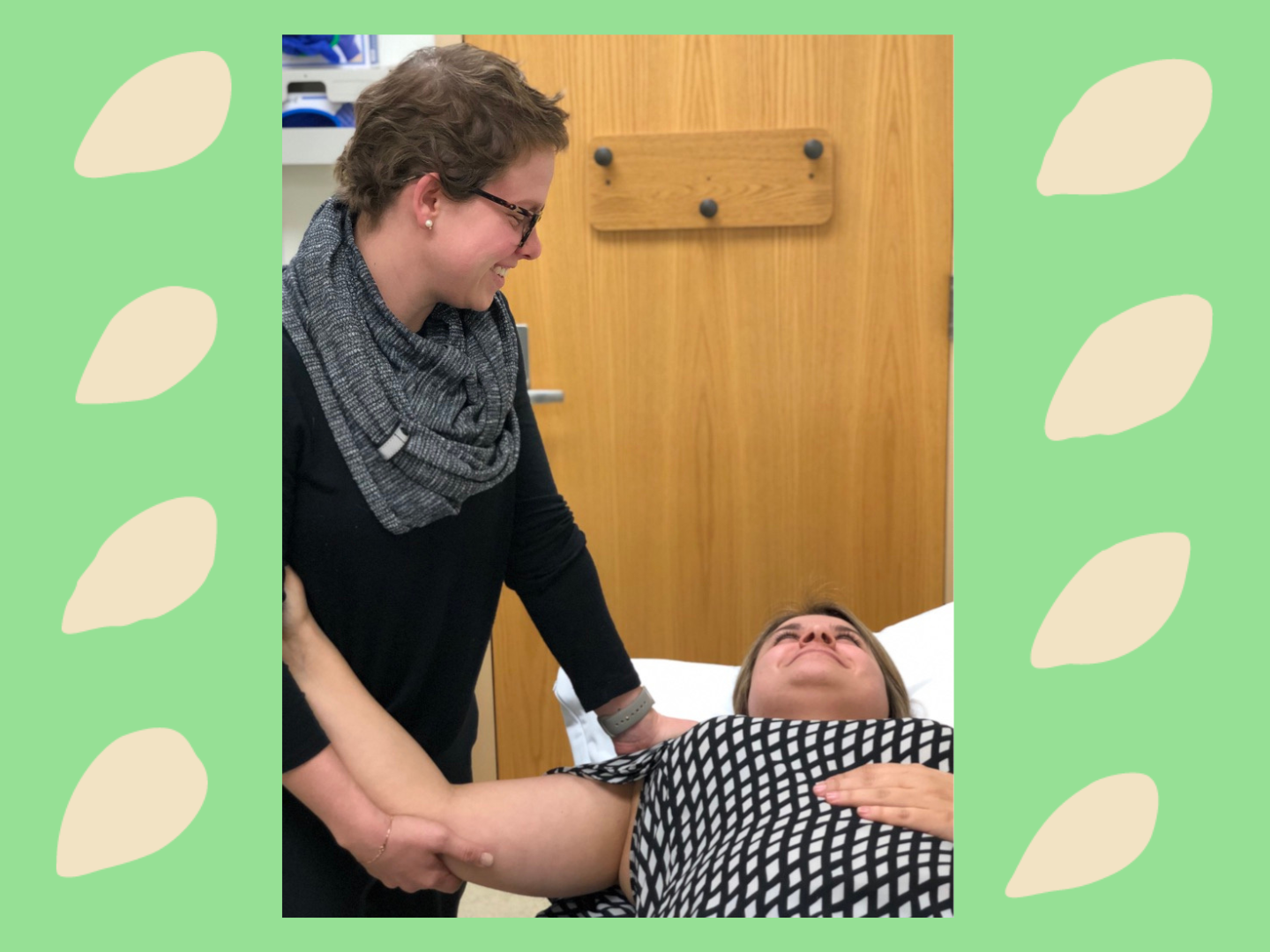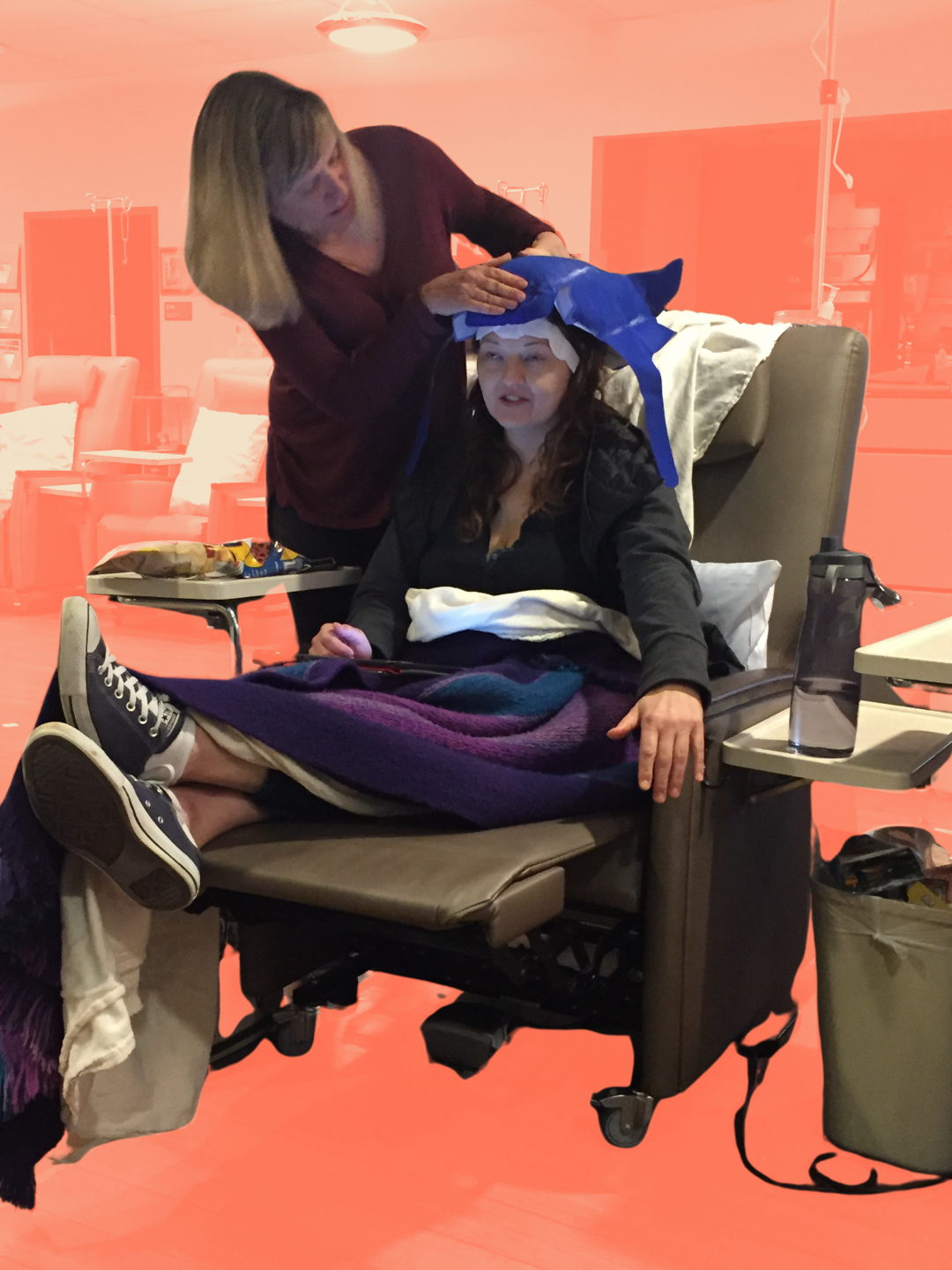Leanna Blanchard, PT, DPT is a certified lymphedema therapist, board certified clinical specialist in orthopaedic physical therapy and fellow of the American Academy of Othropaedic Manual Physical Therapists.
Physical Therapy for Post-Mastectomy Movement
When I graduated from physical therapy school I had a one track mind (as many newly minted PTs do). I wanted to be the best orthopedic physical therapist I could possibly be.
After completing my orthopedic physical therapy residency, I moved back home to Chicago, started a job at an academic medical center, and my supervisor asked if I had any interest in working with patients post-mastectomy. I had absolutely zero experience in this area, but something in my gut told me it would be worth trying.
Fast forward about two years, and now I’d been diagnosed with breast cancer. Had I not been working with these patients, I’m not sure I would have known what to look for — maybe that’s the reason my gut told me to say yes.
Working with these patients and then becoming a survivor myself has taught me a lot about what physical therapy can do after mastectomy, lumpectomy, lymph node removal, and breast reconstruction. However, I’ve also seen that many patients are never referred to physical therapy, or even presented it as an option.
5 Reasons Physical Therapy After Surgery is Important
As both a survivor and an expert, here are the top 5 reasons you should ask your team about physical therapy after surgery.
- Physical Therapy can help manage post-operative pain: PTs have advanced training in manual therapy (i.e. hands on) techniques, therapeutic exercises, activity modification, and positioning that can help reduce pain, improve sleep, and minimize functional loss.
- Physical Therapy can improve range of motion and strength: Often after preventive or cancer related breast surgery, scar tissue can develop and muscles and joints get tight, stiff, and weak, all of which are concerns that your PT can help you tackle.
- Physical Therapy can help identify early stages of lymphedema: After having lymph nodes removed, your risk for lymphedema (a particular type of swelling) is increased. Having a PT have eyes (and hands!) on you after surgery can be helpful in noticing any early changes that happen — they can then make sure you get the care you need.
- Physical Therapy can help you get back to exercise: Even if you feel pretty good after surgery, you may notice that things you used to do are more challenging. PTs can help you set achievable goals to safely work your way back into all your previous activities.
- Physical Therapy can improve quality of life: PTs can teach you skills you can use longterm to self-manage any issues that arise, empowering you to take care of yourself and advocate for your needs.

Caring for patients after breast surgery has become one of my favorite parts of my practice. No two patients are the same — I’ve seen people with no pain and full range of motion within a week after surgery, and I’ve seen people still struggling with tightness, weakness, and pain months to years after surgery. The commonality is that there’s always something I can do to help even just a little bit, regardless of the timeline they may be on, or the severity of their symptoms.
My own experience after surgery was interesting. An occupational therapist came to my hospital room the morning after my mastectomy to make sure I understood my post-op precautions (no reaching overhead, no lifting more than a gallon of milk, etc) and could safely move around enough to go home. At my one week post-op visit, the surgical nurse told me they’d check back in after my drains came out to see how my range of motion was, and then decide if I needed therapy. It never got brought up again after that.
How to Advocate for Physical Therapy
I’ve been fortunate that in the hospitals and clinics where I’ve worked, I’ve had a close relationship with the breast surgeons — this is not always the case. If your team doesn’t mention physical therapy, ask about it. If they tell you that you won’t need it, ask them why. I firmly believe that at the very least, every patient should have a consultation with a physical therapist after surgery. If they’re doing great and don’t need me — wonderful, I’ll send them on their way with my contact info in case something does come up. If they do need me – they’re in the right place, and I’m here to help.
Have questions about how to advocate for physical therapy, questions to ask, or what to expect at your PT appointment? I’m always happy to help – keep in touch with me at @affirmationsfromcancer on Instagram!







